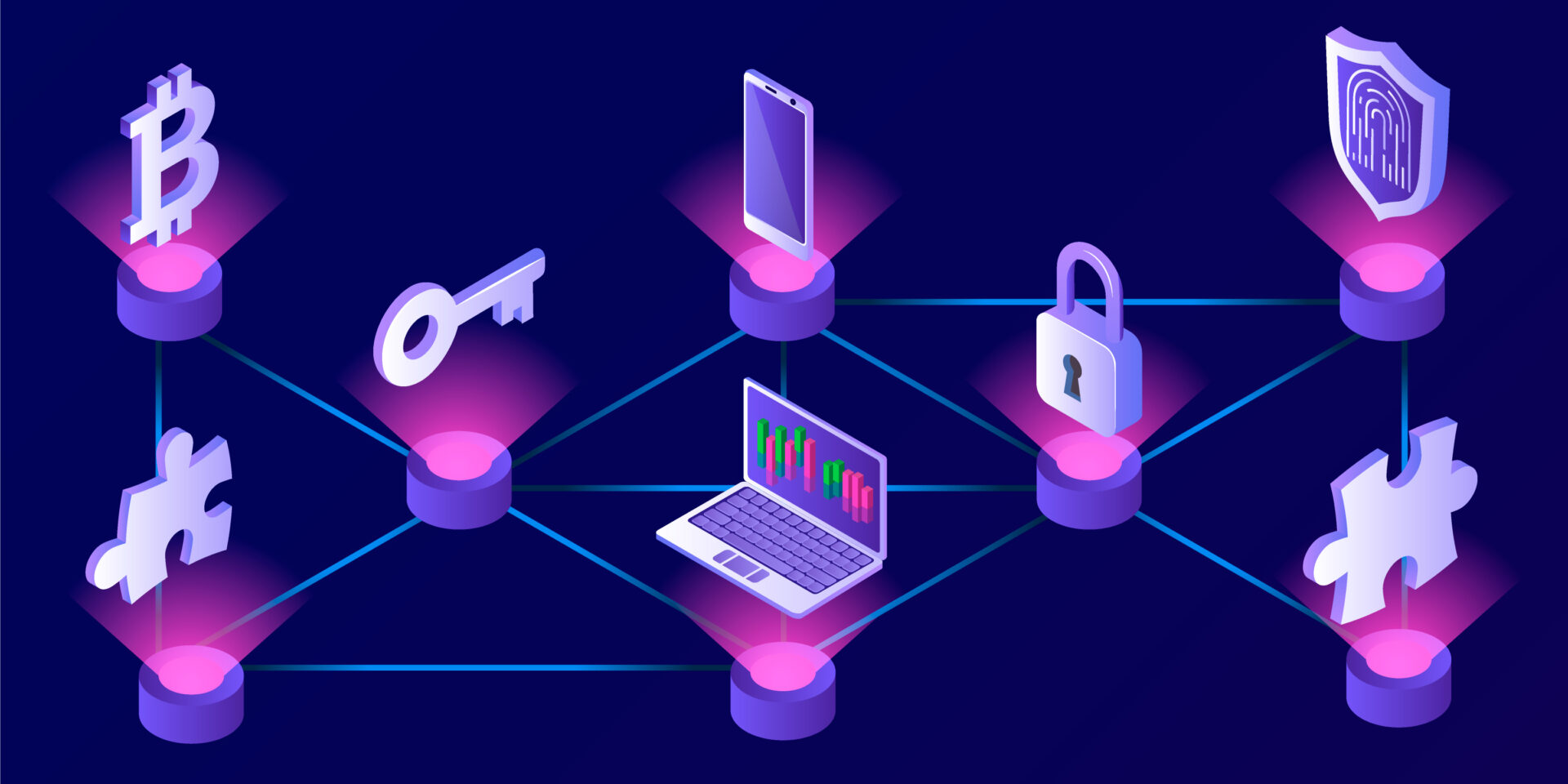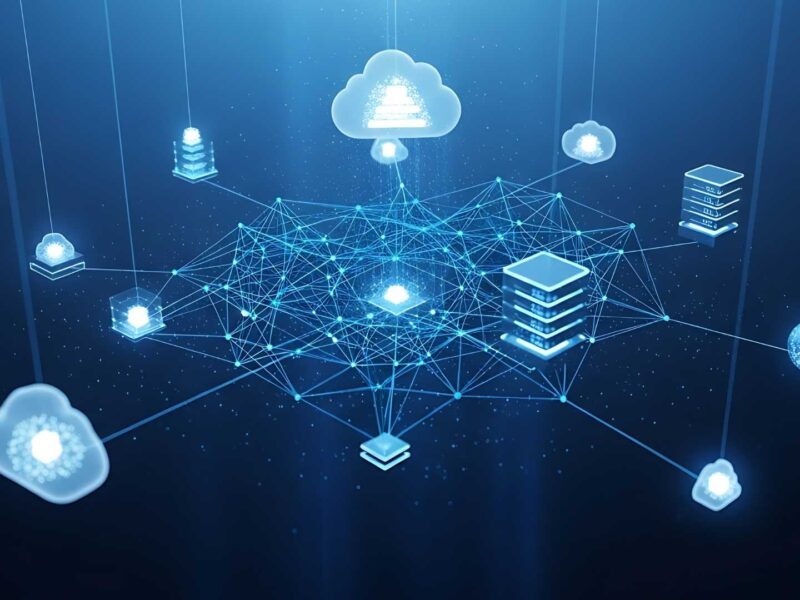Decentralized Identity: The Future of Data Security and Privacy
The vulnerability of business and customer data is always a concern in an era where making money out of stolen data or even holding companies to ransom are common practices and even full-fledged sources of earning.
Traditional identity management systems, with their centralized control and reliance on third-party providers, have often proved inadequate in safeguarding our digital selves.
Decentralized identity (DID) offers the answer. A revolutionary approach, decentralized identifiers empower individuals with greater control over their own data and transform the way users manage their online presence. By leveraging blockchain technology and cryptographic principles, DID creates a secure, transparent, and user-centric identity ecosystem.
In this post, tech experts and business leaders from the Techronicler community share with us significant advantages of decentralized identity over traditional identity management systems to help us understand this new, more secure digital experience.
Read on!
Eliminates Centralized Data Storage
Decentralized identity changes the game for data security. Unlike traditional identity management systems that rely on centralized databases, decentralized identity removes the need for organizations to store sensitive user data.
This difference is significant. Centralized systems create single points of failure. Hackers target these “honey pots” because breaching them gives access to millions of records in one go. We’ve all seen the fallout from these breaches-identity theft, financial fraud, and lawsuits.
With decentralized identity, that problem doesn’t exist. You don’t need to store personal data. Instead, the data stays with the user, cryptographically secured on their device. When someone verifies their identity with your organization, you validate their credentials, but you never hold onto the sensitive details.
This approach offers a distinct advantage: no centralized repository, no single target.
For you, this means fewer headaches. You reduce your exposure to cyberattacks, slash compliance burdens (think GDPR), and build trust with your users. It’s safer for them, and it’s smarter for your organization.
Decentralized identity flips the traditional model. It’s not just a step forward-it’s a whole new direction. If you’re serious about security, moving to a decentralized model isn’t just an option. It’s your best move.

Tom Sargent
Head of Marketing, Vidos
Minimizing Risk
It’s all about minimizing risk.
Traditional identity management systems, with their centralized databases, are like a honeypot for hackers.
One breach and boom, all that sensitive data is up for grabs. That’s a risk we just can’t afford to take.
Decentralized identity flips the script. It puts users back in control of their own data, removing that single point of failure that makes centralized systems so vulnerable.
Think of it like this: instead of having all your eggs in one basket, you’re distributing them across multiple secure locations. This makes it much harder for attackers to steal data because there’s no central hub to target.
For an organization like ours, where data security is paramount, decentralized identity is the obvious choice.
It gives us, and our users, greater control, reduces our risk profile, and strengthens our overall security posture. It’s a win-win situation.

Michael Gargiulo
Founder & CEO, VPN.com
Data Minimization
One big difference between decentralized identity management and standard identity management stands out to me: data minimization.
People only share the bare minimum of personal information needed for a transaction when identity is spread. This is very different from old systems that keep a lot of personal information in one place, which leaves them open to large-scale leaks. On some projects I worked on, it was very important to keep information as safe as possible. Things are much safer this way.
As a digital marketer, I deal with private data all the time, so keeping it safe is very important to me. When it comes to keeping their info safe, people who use decentralized identity feel a lot better. I also think that in a business like mine, information is better kept with the people who work there than in a central computer.

Filip Dimitrijevski
Business Development Manager, ClickVision BPO
Sovereign Control
As an Australian creative industries entrepreneur whose data was compromised in the Medibank, Optus, and LastPass breaches, I’ve experienced firsthand the devastating failure of centralized identity systems.
My health records, phone numbers, and passwords were exposed because I was forced to trust companies to protect my digital identity.
DeID fundamentally flips the security model – instead of creating massive honeypots of personal data waiting to be breached, users maintain sovereign control through their private keys. This becomes especially critical as we build personalized AI experiences that need access to intimate user data.
Decentralized identity – coupled with private computing – puts users back in control of who can access their information and when. A shift that can’t come soon enough for Australians.

Kade Greenland
Founder, Khorus
Tackling Data Silo Vulnerability and User Distrust
In my experience, decentralized identity’s real breakthrough lies in its ability to solve two pressing issues: data silo vulnerability and user distrust. Traditional identity systems collect vast amounts of sensitive information, creating centralized data silos that are prime targets for breaches. Decentralized identity, on the other hand, distributes credential control to individuals, enabling them to share only the essential data required for specific interactions—without relying on vulnerable central repositories.
At JoggAI, while our focus is on AI-driven video creation, we’ve been inspired by how decentralized identity can streamline user verification without exposing them to unnecessary risks. For instance, integrating verifiable credentials ensures users access our services securely, with full control over their data.
Looking ahead, I believe the most compelling aspect is how decentralized identity fosters trust in digital ecosystems. It’s not just about compliance with privacy regulations like GDPR; it’s about creating systems where users feel ownership over their information. That sense of autonomy builds brand loyalty in ways that traditional methods cannot match.
For organizations, the question is no longer why adopt decentralized identity—it’s how to integrate it in a way that scales with innovation.
User-Controlled Cryptographic Verification
Decentralized identity is the exact advantage through the central anatomy of user-controlled cryptographic verification. Traditional centralized systems cause inefficient vulnerable single points of failure. Against this, the decentralization of identity distributes authentication across a blockchain network; it makes large-scale breaches exponentially more difficult to execute.
Within the years I have worked with various technology firms, I noticed that decentralized identity cuts down unauthorized access risks through the lack of credential databases. User get to control cryptographic identity credentials themselves while their verifications get performed through a distributed mechanism in comparison to storing the same data in vulnerable central repositories. It is a transformation in security paradigms from reactive breach management into proactive identity protection.
By design, decentralized identity provides granular, consent-driven data sharing that gives users unprecedented control over their personal information while maintaining robust security protocols.

Sheraz Ali
Founder of HARO Links Builder
Elimination of Centralized Honeypots
One distinct advantage of decentralized identity is the elimination of centralized honeypots of data, which significantly reduces the risk of mass breaches.
Traditional identity management systems store user credentials and personal information in centralized databases, making them prime targets for cyberattacks.
Decentralized identity flips this model by allowing users to store and control their credentials on their own devices, with blockchain or similar technologies ensuring authenticity and trust without central repositories.
For a company like Display Now, where user engagement and privacy are paramount, this approach minimizes liability and builds trust. Customers can verify themselves securely while retaining ownership of their data.
This shift aligns perfectly with evolving regulatory demands and customer expectations, making decentralized identity not just a secure choice, but the future of data management.
Decentralized identity puts control back in the hands of users, creating a safer, trust-driven digital ecosystem.

Chris Dukich
Founder, Display Now
Decentralized Identities
Decentralized identity offers a significant data security advantage by giving individuals full control over their personal information.
Unlike traditional identity management, which stores data in centralized systems vulnerable to large-scale breaches, decentralized identity distributes control.
This reduces the risk of data theft, as compromising one identity provider doesn’t expose all user data, enhancing overall security and privacy.

Sonic Wong
Founder & CEO, Swapfaces
User Control
Decentralized identity offers a key data security advantage by giving users control over their personal data, reducing the risk of centralized data breaches. Instead of storing sensitive data in one place, it’s encrypted and kept on users’ devices, sharing only necessary info with trusted parties. This minimizes exposure to hacks and ensures secure, privacy-focused transactions. It enhances trust, aligning with our commitment to data security.

Alan Noblitt
President, Seascape Capital, LLC
The Techronicler team thanks these leaders for taking the time to share with us some significant advantages of decentralized identity (DID).
If you wish to showcase your experience and expertise, participate in industry-leading discussions, and add visibility and impact to your personal brand and business, get in touch with the Techronicler team to feature in our fast-growing publication.












